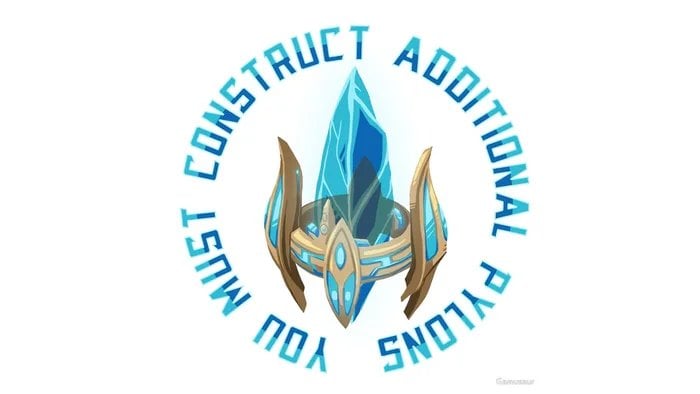Yeah, it’s an in-group exclusivity signifier.
Shame, math is some of the worst at this, everything is named after some guy, so there’s 0 semantic associativity, you either know exactly which Gaussian term they mean, or you are completely clueless even though they just mean noise with a normal distribution.
edit: Currently in a very inter-disciplinary field where the different mathematicians have their own language which has to be translated back into first software, then hardware. It’s so confusing at first till you spend 30 minutes on wikipedia to realize they’re just using an esoteric term to describe something you’ve used forever.
Trying to teach yourself higher math without a textbook is nearly impossible.
You could try just Googling all the Greek letters and symbols but have fun sifting through the hundred-odd uses of σ for the one that’s relevant to your context. And good fucking luck if it’s baked into an image.
The quickest way I’ve gotten an intuition for a lot of higher math things was seeing it implemented in a programming language.
I’ve been learning crypto math the hard way, it’s brutal.
I’ve found one way that works is to learn about the people, like learn about Gauss’s life and work, it helped give me context and perspective for the random terms.
Yeah, it can be really helpful to understand the context and the problems they were trying to solve.
Like for example, I think a lot of pop-sci talk about Special/General Relativity is missing huge chunks of context, because in reality, Einstein didn’t come up with these theories out of thin air. His breakthrough was creating a coherent framework out of decades of theoretical and experimental work from the scientists that came before him.
And the Einstein Field Equations really didn’t answer much on their own, they just posed more questions. It wasn’t until people started to find concrete solutions for them that we really understood just how powerful they were.
GR is fascinating, because it’s something you actually can spend a long, long time completely failing to observe.
Basically until you either try to understand galaxies, or you’ve got a pesky drift issue with your satellites, you don’t need to think about it much at all. Well I suppose if you want to understand why gravity is sometimes weird but you can just ignore that for a really long time.
Gotta love Dirichlet boundary conditions (the function has to have this value), Neumann boundary conditions (the derivative has to have this value) and Cauchy boundary conditions (both).
On the other hand, there’s a bunch of things that are so abstract that it’s difficult to give them a descriptive name, like rings, magmas and weasels
Oh i would say “ring” is in fact quite a descriptive term.
Apparently, in older german, “ringen” meant “to make progress of some sort/to fight for something”. And a ring has two functions: addition and multiplication. These are the foundational functions that you can use to construct polynomials, which are very important functions. You could look at functions as a machine where you put something in and get something out.
In other words, you put something into a function, the function internally “makes some progress”, and spits out a result. That is exactly what you can do with a “ring”.
So it kinda makes sense, I guess.
Currently in a very inter-disciplinary field where the different mathematicians have their own language which has to be translated back into first software, then hardware. It’s so confusing at first till you spend 30 minutes on wikipedia to realize they’re just using an esoteric term to describe something you’ve used forever.
Yeah, this happens a lot. I studied math and I often got the impression that when you read other researcher’s work, they describe the exact same thing that you have already heard about, but in a vastly different language. I wonder how many re-inventions and re-namings there are of any concept simply because people can’t figure out that this thing has already been researched into. It really happens a lot, where 5 people discovered something, but gave them 5 different names.
It’s even worse, math uses arcane terms for things that in many other fields are basically just accepted.
Galois fields? In hardware and software, those are just normal binary unsigned integers of a given bit length.
I get that GFs came about first, but when they were later implemented for computers they weren’t usually (they are sometimes, mostly for carry less mul specifically, or when used for cryptography) called Galois fields, the behavior was just accepted as the default for digital logic.
The division operator of a Galois field (I prefer “finite field”, because it’s more descriptive) is nothing like the what computers usually use for unsigned integers. Like, if you’re working mod 5, then 3/2 = 4 (because 2 * 4 = 8 = 3 mod 5).
I really like the naming of things after their discoverers/inventors. I’m picturing a mathematician getting upset:
“How dare you speak about Friedrich Gauss like that. He dragged that universities astronomy department out of the stone age, even after the death of his first wife…”
The history of the people helps me with remembering the concepts.
Disclaimer: I am NOT a mathematician.
My argument is not against naming things after the discoverer, though in engineering while we have some of this (Heaviside comes to mind), most other concepts have a semantic value so even unknown terms can be mapped fairly easily.
My main argument is that math is taught very poorly, if we had taught math as the history of math in school, this would be far more meaningful, we understand it as a story and each piece in the puzzle an event that brought it about.
IT guy here, we suffer from a similar problem where everything is an acronym so it sounds like alphabet soup that if said as a word means sometimes you can’t even quietly go look it up later. You either nod along knowing what it means or nod along not knowing what it means but having no chance to learn without outing yourself.
And you can’t out yourself because, in many workplace cultures, the appearance of knowing is more important than actually knowing. :/
And then you have multiple identical abbreviations meaning different things or different things that are pronounced the same or multi billion dollar ompanies naming their product after existing words (like Microsoft Word or Office or Outlook…).
Mix in abbreviated customer names, names for servers and internal teams (no, not Microsoft Teams©) and everything is only an incomprehensible letter mumbo-jumbo.
Had a ticket about sports sites being blocked, college talked about how the change was IOC related. International Olympic Committee or Indicator of Compromise, you decide!
realize they’re just using an esoteric term to describe something you’ve used forever.
Programming is applied math. Mathematicians say “theory of mass service”, programmers say “schedulers”. Well, it’s “theory of mass service” in Russian, but in English it is “queue theory”.
inhales
Complex 1a was prepared according to well-known synthetic procedures. The reduction potential of the complex was increased due to the nephelauxetic expansion of the occupied FMOs induced by photolytic epimerization of the auxiliary tetrahydrophosphazolidine sulfide ligand to enable a strongly σ-donating dihaptic coordination mode.
translation: we made molecule 1a, we shouldn’t need to tell you how, it’s obvious, lmao, git gud. the molecule became less likely to gain extra electrons because shining light on it made one of its weird-ass totally-not-bullshit parts wiggle around a bit so that it could bind more strongly to the metal atom through two of its own adjacent atoms, making the metal atom’s relevant electrons floofier.
‘floofier’ should be standard academic jargon
In defense of jargon:
coming up with new ideas and expressing them to others requires new vocabulary. You can’t simply say things in “plain English” especially when you want to communicate with peers.
This is why academia is so often refereed to as a discipline; you must train yourself in new ways of thinking. Making it accessible to the layperson is the job of scientific communicators, not scientists at large.
And it’s not like this is a unique issue with acedemia, every organization I’ve ever participated in had special vocabulary if it was necessary or not.
Jargon is only legitimate when it clarifies more than plain English. If it does, fine, use it.
Every single word in the original post clarifies more than plain English. It is more specific and has better nuance than a plain translation.
That doesn’t make it a useful explanation because the audience of the statement is not the in-group using the jargon.
One part of my daily job is translating “technical” into “manager”. The translation always loses fidelity to the original. Jargon exists because it’s useful, not because there’s a deliberate attempt to keep others out. Some will then use it as a shibboleth but that does not mean it’s original purpose was such.
For what it’s worth: that’s true of all translations. I’ve done real time translation from Italian into English and it’s always missing the nuance of the original. I’ve read the divine comedy in English and Italian and the English is always missing the context and nuance.
Language is an abstract representation of concepts and never maps faithfully.
exactly, i’ve noticed some people on youtube can be REALLY good at this, like Your Dinosaurs Are Wrong for example. Just introduce your jargon the first time it’s used and put up a little explanation every time afterward.
Many professionals (not only scientists) are really bad at crafting sentences and texts, even without jargon.
I get jargon, but even if you replace all of the jargon in a typical paper with simple words, the writing style is often horrible. It’s often weirdly repetitive, has fluff-pieces and empty phrases, and just doesn’t get to the point. (I’ll ignore the inherent worthlessness of many articles here, since this is a symptom of funding policy)
I don’t expect a scientific article to be understandable for someone outside the field, but do yourself the disfavour and ask a random scientist, what it is they’re actually doing and to explain it in simple terms. Most can’t. And that says to me, that these people never learned (or were taught) how to actually boil a concept down to its essence. And that I think is pretty bad.
As an example, two scientists from different fields could work on almost the same problem from different angles, but they would never know that if they talked to each other, because they are unable to express their work in a way the other person can understand.
Academia is usually about minutiae, not concepts. Sometimes they get so hyperfocus in small areas that they are completely unable to give a general summary of what they are doing in the bigger picture. To do so would require them to understand things outside of their very narrow field of study.
And that’s not all. It’s easy to tell someone the high level area that you’re working on, but to explain the exact problem you’re trying to solve and why it’s interesting? That’s a whole journey into many topics that are very unintuitive for human brains to grasp and sometimes require heavy mathematical abstractions to even see that there’s a problem to begin with.
A big reason why newspapers use so many filler-phrases and redundancy and just don’t get to the point is because journalists often get paid for how much they write; The consequence is obviously: filler-words.
Getting paid for “how much they write” may be implicit. For example, the boss might look at what the employees produce and say “ok this employee is good because they wrote 30 pages, this employee is bad because they wrote only 5”. Even though they might get a fixed salary/month, the one that writes few pages might get fired.
I don’t expect a scientific article to be understandable for someone outside the field, but do yourself the disfavour and ask a random scientist, what it is they’re actually doing and to explain it in simple terms. Most can’t. And that says to me, that these people never learned (or were taught) how to actually boil a concept down to its essence. And that I think is pretty bad.
As an example, two scientists from different fields could work on almost the same problem from different angles, but they would never know that if they talked to each other, because they are unable to express their work in a way the other person can understand.
This is why I believe scientists should be required to take liberal arts classes; especially related to written and spoken language. Trying to read a scientific paper as an outsider is painfully hard because you’re trying to understand what the Big Words are trying to say, but then the paper also takes a borderline meandering path that loops back on itself or has sections that mean nothing, leaving you (or at least, me) confused. Like, c’mon man, I’m trying to understand what you’re saying, but your narrative is more convoluted than House of Leaves.
How can you expect to truly make a breakthrough in science if you struggle to accurately and precisely convey your ideas to your peers? Study the great writers so your papers can have great writing and results.
If it helps, try doing it from a scientific perspective - as if you’re studying a brand new creature or property of physics - and make notes on things like,
How the author expresses their ideas.
Was the author easily understandable?
What, if anything, made it easier or harder for you to understand what was written?
What elements made the writing more precise, concise and/or accurate to what the author was trying to convey (using outside sources)?
…and so forth.
(And yes, I also think liberal arts students should be required to take some level of hard STEM classes (not watered-down “libarts-compatible” stuff, but actual physics, chemistry, biology, etc) as well.)
Edit: you might even end up with a reputation for being more intelligent than you actually are, simply because you’re able to convey your ideas significantly better than your peers.
Edit 2: or alternatively, study a programming language until you’re decent at it, and then write your papers as if you’re trying to explain them to a computer.
This is why I believe scientists should be required to take liberal arts classes; especially related to written and spoken language.
And yes, I also think liberal arts students should be required to take some level of hard STEM classes (not watered-down “libarts-compatible” stuff, but actual physics, chemistry, biology, etc) as well.
Yes to both points! I’m eternally grateful to my high school AP English teachers for teaching me how to write and communicate.
My somewhat unpopular opinion is that we’d be better off as a society if everyone in college took “real” STEM and liberal arts classes. The STEM folks can understand the why and societal implications of what they study (as well as just communication), and the liberal arts types can learn a bit about how the world actually works in a concrete way.
Unfortunately, I’ve been continually struck by how incurious people are. I get that everyone has their interests, but that shouldn’t be to the exclusion of all other study. So, I don’t think this will happen. :/
I understood all of that.
That’s what half a year of city college will get you.
The loser research paper vs the chad blog tutorial
^ literally anything related to buffer overflow attacks lol
Academic security research is constitutionally bad because academia as an environment selects people with a “hacker mentality” out at the freshman stage.
It’s inherently biased towards rule-followers. That’s not a bad thing, but it means it’s bad at some things. Such as computer security research.
- insert Terry Davis quote *
I understood every word of that, and I hate you.
I understood about 45% of that, and I also hate them.
He said it’s hard to see through the style of their writing because they use fancy language related to their field of work and it causes a vicious cycle of other people doing the same while excluding normal people.
It’s something that people, in least in my field of microbiology, have been recently aware of and are trying to correct. The problem is not just an in-group signifier, since everyone, even experts, finds the author insufferable and difficult to understand
In my first year of uni, I had to write a 20 page paper, so I wrote it about how academic writing sucks.
Cheeky as hell, but I got a good grade, and my teacher liked it
It’s legit a great topic. Scientists need to remember that communication is an important skill.
If I might interject.
One word mean many thing to not same people.
Use special word for special job. Special job doers no get dizzy. All know special word mean same thing.
Special words job help make many people with not same word skill talk gooder.
If you need an example of this read republic book 1.
Socrates essentially just dunks on these guys that are trying to define justice.
One of them says that justice is doing good to your friends and evil to your enemies
The way that socrates reubuts this argument is that the fella in question doesn’t define friends, enemies, good, or evil, so how can he expect to come up with an idea of what justice is before first defining these other concepts that are meaningful to us because of their common usage, but can be twisted greatly in logical argumentation.
I like the part where one guy goes, “Justice is paying your debts” and Socrates goes, “oh yeah? so it would be just for me to return the gun my friend loaned me, when he comes back requesting it in a murderous frenzy? Yeah, that’s what I thought.”
And the guy just leaves lol
Smartest man involved, cephalus was!
And yet? We’re still no further along. 🤷🏽♂️🤪
Is there an AcademicDictionary in the vein of Urban Dictionary for all the jargon and filler patterns?
It’s just a good thesaurus.
If you’re reading an academic paper, you just follow the citations until someone defines it.
I don’t read much (/any) academic writing, but does it really misuse words the way the link portrays?
Eg
- academic writing isn’t prose, like that’s almost the definition of prose.
- intra-specialized doesn’t mean anything (the intra prefix didn’t work on adjectives)
- “obfuscating … accessibility” means making it difficult to see that it is accessible, where the author probably actually wants to say “reducing the ability of outsiders to access the meaning”
I get that it is satire, but imo it would be better satire if he put in the work to actually make it mean something. Unless the point is that academic writers misuse thesauruses this badly.
I think the meaning of the actual words that he chose is less important than the fact that it sounds absurdly convoluted.
Also I don’t think his point is true. If you read academic papers come up most of them are pretty easy to understand.
I think the point is that academic writers use large terms, despite using them wrong, when diminutive ones would suffice.
They use big words for the sake of using big words. Whether they make any sense whatsoever, is entirely beside the point.
The text, as I understand it is essentially saying the same thing, using big words to obfuscate that they’re actually saying something rather boring and simple, which also has the point of obfuscating the meaning of the text to anyone who isn’t an academic; aka someone who isn’t used to such nonsensical word play.
There’s a good reason I’ve avoided any work in academic fields. They incorrectly use terms, which just muddies the water on what the hell they’re actually saying. Not only because the terms are big/less known, but because they’re often used wrong.
IMO, academics are morons who like to sound smart.
… Do you concur?
I don’t think that there’s a higher concentration of morons in academia than in larger society. However, their professional experience is pretty different from the so called ‘real world’ so they definitely can have some unfathomable blind spots.
I agree with this, especially that the number of morons isn’t higher than society at large, and therein lies the problem with society.
Not unlike LLMs. How curious.
Socioeconomic encryption. Fun fact: the Chinese written language was focused on this concept — and Korean focused on doing the opposite, in fact.
It’s saying that it uses terminology that is well-understood, specific and explicit within the field, but depends on a common understanding of the language used. So people outside the field are unable to understand it, even though they would be able to understand the actual concepts.
I agree that that’s probably what it’s trying to say, but I don’t think it actually says that.
thesauri*
*thesaurisi
Veni, Vidi, Thesaurisi?
All English words that don’t have a specific pluralization (eg mouse, mice) can be pluralized with either an s or an es. It’s also a Latin and Greek root, so it can be pluralized as you did, in the Latin way, or the Greek way (Thesauroi), or alternatively with the s/es ending, all of which are correct!
Unlike “octopi”. 🙇🏽♂️
Nope! Octopuses, octopuses, and octopi are all correct afaik
Wrong, sorry. Októpus is a Greek word that translates to “eight foot,” and pluralizing it via Latin has no etymological basis. “Acceptable/widely used” is in no way synonymous to “correct”, let’s not forget.
Not who you’re responding to but I must vehemently disagree. In English, which doesn’t have a centralized governing body, the correct way of pronouncing/spelling something depends on your intention and expected audience. If your intended audience is English speakers then the correct spelling is probably octopi or octopuses, whichever you believe will cause the least confusion/distraction (surely it varies regionally).
However, usually my intention is to portray my unfathomably superior knowledge and intellect, so the correct spelling/pronunciation in this case is: octopodes (which I think he had listed but ironically got ‘corrected’ to ‘octopuses’).
Modulating one’s speech according to audience is not dialectic morphology, much less general etymology — it’s a matter of scope.
You can use whatever you want, no argument there. Whether or not it comes off sounding semi-literate is more up to your audience and your own self-awareness than any “centralized governing body”, citizen. 🙇🏽♂️🫣
“As with many modern scientific creature-names, it was coined in Modern Latin from Greek elements, so it might be allowed to partake of Latin grammar in forming the plural”
Literally from the link you provided. It was coined initially in the language of modern latin, from Greek roots, certainly, but the word objectively and literally comes from modern latin.
you know the academic jargon is bad when you can translate it into french and the sentence is almost the exact same
French scholars are famous for their mastery of obscurantism. That’s what this is called.
Oh don’t even get me started about french philosophers - philosophy in general is very guilty of this, but french are absolutely the worst. Entire books of complete jargon where the point seems to be to sound as fancy as possible without as little content as possible
or as Freud put it:
“So, I gave my lecture yesterday. Despite the lack of preparation, I spoke quite well and without hesitation, which I ascribe to the cocaine I had taken before hand. I told about my discoveries in brain anatomy, all very difficult things that the audience certainly did not understand, but all that matters is that they get the impression that I understand it.”


I hadn’t actually considered academic writing as an expression of sociopathic manipulation until now, but it explains a lot.
This is perfect
One of my favorite Calvin & Hobbs. :D
Laughs in Pierre Bourdieu

















